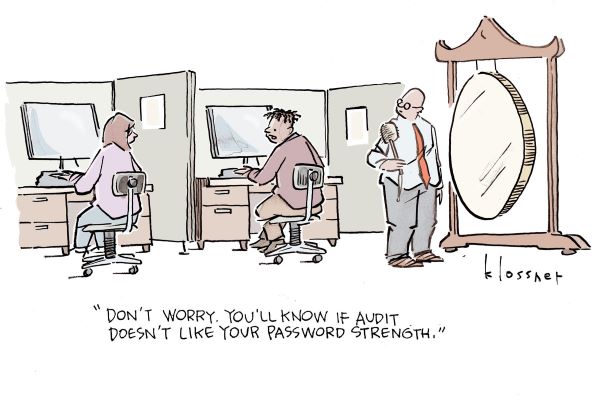
-----BEGIN PGP SIGNED MESSAGE-----
Hash: SHA256
===========================================================================
AUSCERT External Security Bulletin Redistribution
ESB-2021.0001
procps-ng vulnerabilities
4 January 2021
===========================================================================
AusCERT Security Bulletin Summary
---------------------------------
Product: BIG-IP
BIG-IQ
Traffix SDC
Publisher: F5 Networks
Operating System: Network Appliance
Impact/Access: Execute Arbitrary Code/Commands -- Existing Account
Increased Privileges -- Existing Account
Denial of Service -- Existing Account
Access Confidential Data -- Existing Account
Resolution: Patch/Upgrade
CVE Names: CVE-2018-1126 CVE-2018-1124 CVE-2018-1122
Reference: ASB-2019.0065
ESB-2020.4254
ESB-2020.1342
ESB-2020.1171
Original Bulletin:
https://support.f5.com/csp/article/K00409335
https://support.f5.com/csp/article/K16124204
https://support.f5.com/csp/article/K00409335
Comment: This bulletin contains three (3) F5 Networks security advisories.
- --------------------------BEGIN INCLUDED TEXT--------------------
K00409335: procps-ng vulnerability CVE-2018-1122
Original Publication Date: 29 Dec, 2020
Security Advisory Description
procps-ng before version 3.3.15 is vulnerable to a local privilege escalation
in top. If a user runs top with HOME unset in an attacker-controlled directory,
the attacker could achieve privilege escalation by exploiting one of several
vulnerabilities in the config_file() function. (CVE-2018-1122)
Impact
A local attacker can perform privilege escalation and cause a denial-of-service
(DoS) or execute malicious code.
Security Advisory Status
F5 Product Development has assigned ID 975605 (BIG-IP), ID 975605-7 (BIG-IQ),
and CPF-25225 (Traffix SDC) to this vulnerability.
To determine if your product and version have been evaluated for this
vulnerability, refer to the Applies to (see versions) box. To determine if your
release is known to be vulnerable, the components or features that are affected
by the vulnerability, and for information about releases, point releases, or
hotfixes that address the vulnerability, refer to the following table. For more
information about security advisory versioning, refer to K51812227:
Understanding security advisory versioning.
+---------------------+------+----------+----------+--------+------+----------+
| | |Versions |Fixes | |CVSSv3|Vulnerable|
|Product |Branch|known to |introduced|Severity|score^|component |
| | |be |in | |1 |or feature|
| | |vulnerable| | | | |
+---------------------+------+----------+----------+--------+------+----------+
| |16.x |None |Not | | | |
| | | |applicable| | | |
| +------+----------+----------+ | | |
| |15.x |None |Not | | | |
| | | |applicable| | | |
|BIG-IP (LTM, AAM, +------+----------+----------+ | | |
|Advanced WAF, AFM, |14.x |None |Not | | | |
|Analytics, APM, ASM, | | |applicable| | | |
|DDHD, DNS, FPS, GTM, +------+----------+----------+Medium |6.7 |procps-ng |
|Link Controller, PEM,|13.x |13.1.0 - |None | | | |
|SSLO) | |13.1.3 | | | | |
| +------+----------+----------+ | | |
| |12.x |12.1.0 - |None | | | |
| | |12.1.5 | | | | |
| +------+----------+----------+ | | |
| |11.x |11.6.1 - |None | | | |
| | |11.6.5 | | | | |
+---------------------+------+----------+----------+--------+------+----------+
| |7.x |7.0.0 - |None | | | |
| | |7.1.0 | | | | |
|BIG-IQ Centralized +------+----------+----------+ | | |
|Management |6.x |6.0.0 - |None |Medium |6.7 |procps-ng |
| | |6.1.0 | | | | |
| +------+----------+----------+ | | |
| |5.x |5.4.0 |None | | | |
+---------------------+------+----------+----------+--------+------+----------+
|Traffix SDC |5.x |5.1.0 |None |Medium |6.7 |procps-ng |
+---------------------+------+----------+----------+--------+------+----------+
^1The CVSSv3 score link takes you to a resource outside of AskF5, and it is
possible that the document may be removed without our knowledge.
Security Advisory Recommended Actions
If you are running a version listed in the Versions known to be vulnerable
column, you can eliminate this vulnerability by upgrading to a version listed
in the Fixes introduced in column. If the table lists only an older version
than what you are currently running, or does not list a non-vulnerable version,
then no upgrade candidate currently exists.
Mitigation
To mitigate this vulnerability, you should permit management access to F5
products only over a secure network and restrict command line access for
affected systems to only trusted users. For more information, refer to K13309:
Restricting access to the Configuration utility by source IP address (11.x -
16.x) and K13092: Overview of securing access to the BIG-IP system.
Supplemental Information
o K41942608: Overview of security advisory articles
o K4602: Overview of the F5 security vulnerability response policy
o K4918: Overview of the F5 critical issue hotfix policy
o K9502: BIG-IP hotfix and point release matrix
o K13123: Managing BIG-IP product hotfixes (11.x - 16.x)
o K15106: Managing BIG-IQ product hotfixes
o K15113: BIG-IQ hotfix and point release matrix
o K48955220: Installing an OPSWAT Endpoint Security update on BIG-IP APM
systems (11.4.x and later)
o K167: Downloading software and firmware from F5
o K9970: Subscribing to email notifications regarding F5 products
o K9957: Creating a custom RSS feed to view new and updated documents
- --------------------------------------------------------------------------------
K16124204: procps-ng vulnerability CVE-2018-1124
Original Publication Date: 29 Dec, 2020
Security Advisory Description
procps-ng before version 3.3.15 is vulnerable to multiple integer overflows
leading to a heap corruption in file2strvec function. This allows a privilege
escalation for a local attacker who can create entries in procfs by starting
processes, which could result in crashes or arbitrary code execution in proc
utilities run by other users. (CVE-2018-1124)
Impact
A local attacker can perform privilege escalation and cause a denial-of-service
(DoS) or execute malicious code.
Security Advisory Status
F5 Product Development has assigned ID 975609 (BIG-IP), 975609-3 (BIG-IQ), and
CPF-25225 (Traffix SDC) to this vulnerability.
To determine if your product and version have been evaluated for this
vulnerability, refer to the Applies to (see versions) box. To determine if your
release is known to be vulnerable, the components or features that are affected
by the vulnerability, and for information about releases, point releases, or
hotfixes that address the vulnerability, refer to the following table. For more
information about security advisory versioning, refer to K51812227:
Understanding security advisory versioning.
+---------------------+------+----------+----------+--------+------+----------+
| | |Versions |Fixes | |CVSSv3|Vulnerable|
|Product |Branch|known to |introduced|Severity|score^|component |
| | |be |in | |1 |or feature|
| | |vulnerable| | | | |
+---------------------+------+----------+----------+--------+------+----------+
| |16.x |None |Not | | | |
| | | |applicable| | | |
| +------+----------+----------+ | | |
| |15.x |None |Not | | | |
| | | |applicable| | | |
|BIG-IP (LTM, AAM, +------+----------+----------+ | | |
|Advanced WAF, AFM, |14.x |None |Not | | | |
|Analytics, APM, ASM, | | |applicable| | | |
|DDHD, DNS, FPS, GTM, +------+----------+----------+High |7.5 |procps-ng |
|Link Controller, PEM,|13.x |13.1.0 - |None | | | |
|SSLO) | |13.1.3 | | | | |
| +------+----------+----------+ | | |
| |12.x |12.1.0 - |None | | | |
| | |12.1.5 | | | | |
| +------+----------+----------+ | | |
| |11.x |11.6.1 - |None | | | |
| | |11.6.5 | | | | |
+---------------------+------+----------+----------+--------+------+----------+
| |7.x |7.0.0 - |None | | | |
|BIG-IQ Centralized | |7.1.0 | | | | |
|Management +------+----------+----------+High |7.5 |procps-ng |
| |6.x |6.0.0 - |None | | | |
| | |6.1.0 | | | | |
+---------------------+------+----------+----------+--------+------+----------+
|Traffix SDC |5.x |5.1.0 |None |High |7.5 |procps-ng |
+---------------------+------+----------+----------+--------+------+----------+
^1The CVSSv3 score link takes you to a resource outside of AskF5, and it is
possible that the document may be removed without our knowledge.
Security Advisory Recommended Actions
If you are running a version listed in the Versions known to be vulnerable
column, you can eliminate this vulnerability by upgrading to a version listed
in the Fixes introduced in column. If the table lists only an older version
than what you are currently running, or does not list a non-vulnerable version,
then no upgrade candidate currently exists.
Mitigation
To mitigate this vulnerability, you should permit management access to F5
products only over a secure network and restrict command-line access for
affected systems to only trusted users. For more information about this
mitigation that is applicable to the BIG-IP system, refer to K13309:
Restricting access to the Configuration utility by source IP address (11.x -
16.x) and K13092: Overview of securing access to the BIG-IP system.
Supplemental Information
o K41942608: Overview of security advisory articles
o K4602: Overview of the F5 security vulnerability response policy
o K4918: Overview of the F5 critical issue hotfix policy
o K9502: BIG-IP hotfix and point release matrix
o K13123: Managing BIG-IP product hotfixes (11.x - 16.x)
o K15106: Managing BIG-IQ product hotfixes
o K15113: BIG-IQ hotfix and point release matrix
o K167: Downloading software and firmware from F5
o K9970: Subscribing to email notifications regarding F5 products
o K9957: Creating a custom RSS feed to view new and updated documents
- --------------------------------------------------------------------------------
K83271321: procps-ng vulnerability CVE-2018-1126
Original Publication Date: 29 Dec, 2020
Security Advisory Description
procps-ng before version 3.3.15 is vulnerable to an incorrect integer size in
proc/alloc.* leading to truncation/integer overflow issues. This flaw is
related to CVE-2018-1124. (CVE-2018-1126)
Impact
A local attacker may be able cause an integer overflow that negatively
impacts applications.
Security Advisory Status
F5 Product Development has assigned ID 975645 (BIG-IP and BIG-IQ) and CPF-25225
(Traffix SDC) to this vulnerability.
To determine if your product and version have been evaluated for this
vulnerability, refer to the Applies to (see versions) box. To determine if your
release is known to be vulnerable, the components or features that are affected
by the vulnerability, and for information about releases, point releases, or
hotfixes that address the vulnerability, refer to the following table. For more
information about security advisory versioning, refer to K51812227:
Understanding security advisory versioning.
+---------------------+------+----------+----------+--------+------+----------+
| | |Versions |Fixes | |CVSSv3|Vulnerable|
|Product |Branch|known to |introduced|Severity|score^|component |
| | |be |in | |1 |or feature|
| | |vulnerable| | | | |
+---------------------+------+----------+----------+--------+------+----------+
| |16.x |None |Not | | | |
| | | |applicable| | | |
| +------+----------+----------+ | | |
| |15.x |None |Not | | | |
| | | |applicable| | | |
|BIG-IP (LTM, AAM, +------+----------+----------+ | | |
|Advanced WAF, AFM, |14.x |None |Not | | | |
|Analytics, APM, ASM, | | |applicable| | | |
|DDHD, DNS, FPS, GTM, +------+----------+----------+ Medium |4.8 |procps-ng |
|Link Controller, PEM,|13.x |13.1.0 - |None | | | |
|SSLO) | |13.1.3 | | | | |
| +------+----------+----------+ | | |
| |12.x |12.1.0 - |None | | | |
| | |12.1.5 | | | | |
| +------+----------+----------+ | | |
| |11.x |11.6.1 - |None | | | |
| | |11.6.5 | | | | |
+---------------------+------+----------+----------+--------+------+----------+
| |7.x |7.0.0 - |None | | | |
|BIG-IQ Centralized | |7.1.0 | | | | |
|Management +------+----------+----------+Medium |4.8 |procps-ng |
| |6.x |6.0.0 - |None | | | |
| | |6.1.0 | | | | |
+---------------------+------+----------+----------+--------+------+----------+
|Traffix SDC |5.x |5.1.0 |None |Medium |4.8 |procps-ng |
+---------------------+------+----------+----------+--------+------+----------+
^1The CVSSv3 score link takes you to a resource outside of AskF5, and it is
possible that the document may be removed without our knowledge.
Security Advisory Recommended Actions
If you are running a version listed in the Versions known to be vulnerable
column, you can eliminate this vulnerability by upgrading to a version listed
in the Fixes introduced in column. If the table lists only an older version
than what you are currently running, or does not list a non-vulnerable version,
then no upgrade candidate currently exists.
Mitigation
To mitigate this vulnerability, you should permit management access to F5
products only over a secure network and restrict command-line access for
affected systems to only trusted users. For more information, refer to K13309:
Restricting access to the Configuration utility by source IP address (11.x -
16.x) and K13092: Overview of securing access to the BIG-IP system.
Supplemental Information
o K41942608: Overview of security advisory articles
o K4602: Overview of the F5 security vulnerability response policy
o K4918: Overview of the F5 critical issue hotfix policy
o K9502: BIG-IP hotfix and point release matrix
o K13123: Managing BIG-IP product hotfixes (11.x - 16.x)
o K15106: Managing BIG-IQ product hotfixes
o K15113: BIG-IQ hotfix and point release matrix
o K48955220: Installing an OPSWAT Endpoint Security update on BIG-IP APM
systems (11.4.x and later)
o K167: Downloading software and firmware from F5
o K9970: Subscribing to email notifications regarding F5 products
o K9957: Creating a custom RSS feed to view new and updated documents
- --------------------------END INCLUDED TEXT--------------------
You have received this e-mail bulletin as a result of your organisation's
registration with AusCERT. The mailing list you are subscribed to is
maintained within your organisation, so if you do not wish to continue
receiving these bulletins you should contact your local IT manager. If
you do not know who that is, please send an email to auscert@auscert.org.au
and we will forward your request to the appropriate person.
NOTE: Third Party Rights
This security bulletin is provided as a service to AusCERT's members. As
AusCERT did not write the document quoted above, AusCERT has had no control
over its content. The decision to follow or act on information or advice
contained in this security bulletin is the responsibility of each user or
organisation, and should be considered in accordance with your organisation's
site policies and procedures. AusCERT takes no responsibility for consequences
which may arise from following or acting on information or advice contained in
this security bulletin.
NOTE: This is only the original release of the security bulletin. It may
not be updated when updates to the original are made. If downloading at
a later date, it is recommended that the bulletin is retrieved directly
from the author's website to ensure that the information is still current.
Contact information for the authors of the original document is included
in the Security Bulletin above. If you have any questions or need further
information, please contact them directly.
Previous advisories and external security bulletins can be retrieved from:
https://www.auscert.org.au/bulletins/
===========================================================================
Australian Computer Emergency Response Team
The University of Queensland
Brisbane
Qld 4072
Internet Email: auscert@auscert.org.au
Facsimile: (07) 3365 7031
Telephone: (07) 3365 4417 (International: +61 7 3365 4417)
AusCERT personnel answer during Queensland business hours
which are GMT+10:00 (AEST).
On call after hours for member emergencies only.
===========================================================================
-----BEGIN PGP SIGNATURE-----
Comment: http://www.auscert.org.au/render.html?it=1967
iQIVAwUBX/JcIeNLKJtyKPYoAQhtUg/+MI1+t3R9XtxbBibCFHw86YSLYwYzoTNV
5M7J8JQ5kB+b0p5rmDPtD8p1P9M3HgH1ESzz0tuqyamKWDE02lZe4TTHXmP1wB1F
8DqxXvBbwKRQR8x1uRWj3VxwjnGWVufdPwTcD+SFl97bvaj7qPK1AyorB232acEe
8XQhRlPdkhPx90ZGk0r2/ZFWGP25vFtSbG8lxPyfmeroanJ/a26GhlBDmB0/W/V4
sc8vmxd/3Fvh/iAD2IdN+Sb71pbsQTv+2HDJbHA4yWuM6udAUKdMnlnwFR5HNe/r
8NciF7rWpnlIU52E2kYeUdjbDMRV/EPTaP3GHmEnriufI3r6Inobu86em6gJjVX0
JRN6/mXI0Seyq3H/hxS5pt8eFWk/sUeMa1DmfTb1Fx73u3iPfQ08Mp3ao/QhkZmj
z9jgvkl2ax/MBV9qpWOUpDtlFFXiJ9FAvtPxJCNuXfvNn02KJkTPGSOj5efaUug4
GMloYewI5RvFYJJJz2sJOZdtg9jNnUQh3mPJiB6pcoWTCS03uhiuEG8Fix6gqTiR
+KvXdxFdxgqsq+fGL8rqSm51Hl6B1qweGN2a2ziLjMjxrjPmx44NL6beXIPBx0x9
k5QtDZGs5AmVkk5wZL7P0UKUeRmAWFm1iptpp7FSdsMrTa6zFuaqDY9VYiBE0cxE
EEFKFSWrkWk=
=jvfY
-----END PGP SIGNATURE-----
Read More
The post ESB-2021.0001 – [Appliance] F5 products: Multiple vulnerabilities appeared first on Malware Devil.
https://malwaredevil.com/2021/01/04/esb-2021-0001-appliance-f5-products-multiple-vulnerabilities/?utm_source=rss&utm_medium=rss&utm_campaign=esb-2021-0001-appliance-f5-products-multiple-vulnerabilities

 2020: The Year in SecurityDownload this Tech Digest for a look at the biggest security stories that – so far – have shaped a very strange and stressful year.
2020: The Year in SecurityDownload this Tech Digest for a look at the biggest security stories that – so far – have shaped a very strange and stressful year.

















